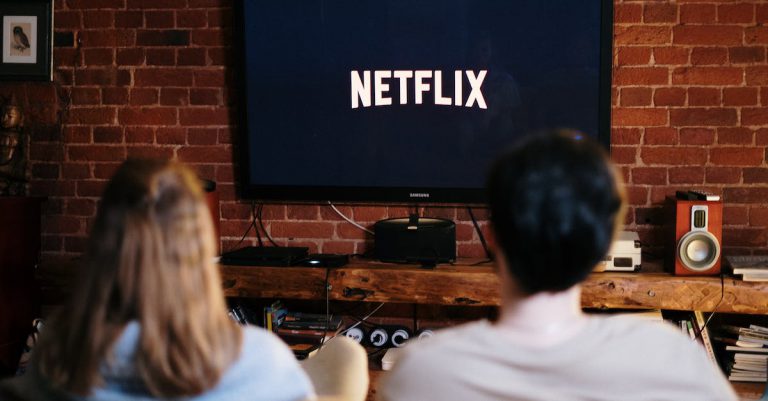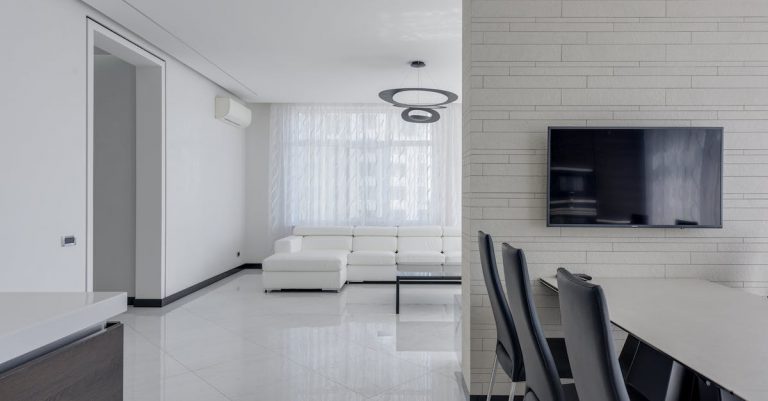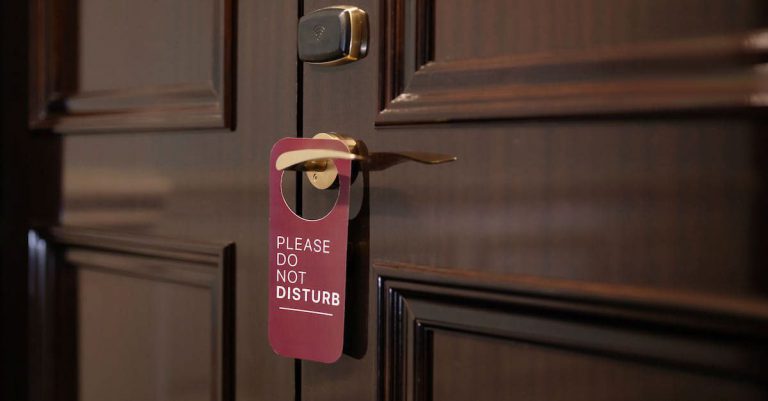When we book a hotel, it’s easy to focus only on the room rate. However, the final amount often surpasses the initial quote due to something called hotel incidental charges.
If you’re short on time, here’s a quick answer:
Hotel incidental charges are additional expenses that guests may incur during their stay, beyond the basic room rate. These charges are typically for services or amenities not included in the standard room rate, such as room service, minibar usage, spa treatments, parking fees, and internet access.
The amount of hotel incidental charges can vary widely based on factors such as the hotel’s location, star rating, and the services used by the guest. On average, hotel incidental charges can range from $25 to $100 per day, but this can be higher in luxury hotels or during peak travel seasons. It’s essential for guests to review their hotel’s policies and inquire about any potential incidental charges during check-in to avoid surprises on their final bill.
In this article, we delve deep into these charges, their determination, and ways to navigate them.
Defining Hotel Incidental Charges
Hotel incidental charges refer to additional expenses that guests may incur during their stay beyond the basic room rate. These charges are separate from the room rate and are often added to the final bill upon checkout. Incidental charges can include a wide range of services and amenities that guests may use or consume during their stay, such as room service, minibar items, spa treatments, parking fees, and Wi-Fi access.
The Concept of Incidental Charges
The concept of incidental charges is based on the idea that guests may require additional services or amenities during their stay, which are not covered by the standard room rate. These charges allow hotels to offer a range of services to enhance the guest experience and cater to individual preferences. By offering these additional services, hotels can provide guests with convenience and comfort, ensuring a memorable stay.
The Prevalence of Incidental Charges
Incidental charges are prevalent in the hotel industry and are a standard practice among most hotels worldwide. They are a way for hotels to generate additional revenue and offset the costs of providing extra services. The prevalence of incidental charges can vary depending on the hotel’s star rating, location, and the level of amenities and services offered. Higher-end hotels and resorts often have a wider range of services and amenities, resulting in a higher likelihood of incurring incidental charges.
Common Types of Incidental Charges
There are several common types of incidental charges that guests may encounter during their stay. These can include:
- Room Service: Charges for ordering food or beverages to be delivered to the room.
- Minibar: Charges for consuming items from the minibar, such as snacks and beverages.
- Spa and Wellness: Charges for using spa facilities, booking treatments, or accessing fitness centers.
- Parking fees: Charges for using the hotel’s parking facilities.
- Wi-Fi access: Charges for accessing the internet in the hotel room or public areas.
It’s important for guests to be aware of these charges and to review the hotel’s policies regarding incidental charges before making a reservation. This can help guests plan their budget accordingly and avoid any unexpected expenses during their stay.
Also Read: How Long Does it Take to Get Incidentals Back from a Hotel?
How Hotels Determine Incidental Charges
When you stay at a hotel, you may have noticed additional charges on your bill called incidental charges. These charges are separate from the room rate and cover various services or amenities that you may have used during your stay. Understanding how hotels determine these charges can help you better manage your expenses and avoid any surprises when checking out.
Role of Hotel Policies
Hotel policies play a significant role in determining the incidental charges you may incur during your stay. Each hotel has its own set of policies that outline the specific services or amenities that may incur additional charges. These policies are typically communicated to guests upon check-in or can be found in the hotel’s information booklet in the room.
For example, some hotels may charge for services such as Wi-Fi access, parking, or using the mini-bar in the room. The charges for these services are usually outlined in the hotel policy, and guests are expected to abide by them.
Impact of Guest Usage
The amount of incidental charges you may incur can also be influenced by your own usage of hotel services or amenities. For instance, if you frequently use the hotel’s spa, order room service, or make long-distance phone calls from your room, you can expect higher incidental charges on your bill.
Hotels track these charges based on your room number, and the charges are typically added to your final bill upon checkout. It’s important to keep track of the services you use to avoid any surprises and ensure that the charges are accurate.
How much does your hotel hold for incidentals?
by u/beanandcheezburrito_ in askhotels
Variation Across Different Hotels
It’s worth noting that the specific incidental charges and their determination can vary across different hotels. While some hotels may include certain services in the room rate, others may charge separately for those services. It’s always a good idea to familiarize yourself with the hotel’s policies and inquire about any potential additional charges before making a reservation.
If you’re unsure about the incidental charges at a specific hotel, you can visit their official website or contact their customer service for more information. Additionally, you can also find valuable insights and reviews from other guests who have stayed at the hotel on travel websites such as TripAdvisor or Booking.com.
By understanding how hotels determine incidental charges, you can better plan and budget for your stay. Remember to always read the hotel policies, keep track of your usage, and ask any questions you may have to avoid any unexpected surprises on your bill.
The Impact of Incidental Charges on Your Hotel Bill
When it comes to hotel bills, incidental charges can have a significant impact on the total cost of your stay. Incidental charges are additional fees that hotels may add to your bill for various services or items that are not included in the initial room rate. These charges can quickly add up, so it’s important to understand how they are determined and how they can affect your overall expenses.
Total Cost Implications
Incidental charges can vary greatly depending on the hotel and the services you utilize during your stay. Common incidental charges include fees for in-room dining, spa treatments, parking, Wi-Fi access, and minibar items. These charges are typically added to your bill on a per-use basis, meaning that the more you utilize these services, the higher your bill will be. It’s essential to be aware of these potential expenses and factor them into your budget when planning your trip.
According to a study conducted by Hotel News Resource, the average hotel guest incurs approximately $30 to $50 per day in incidental charges. However, this figure can vary significantly depending on the location and type of hotel. Luxury hotels, for example, may have higher incidental charges compared to budget accommodations.
Surprise vs. Expected Charges
One of the challenges with incidental charges is that they can sometimes come as a surprise to guests. While some charges, such as in-room dining or spa services, may be expected, others may catch you off guard. For example, some hotels charge for using the telephone in your room or for receiving packages. It’s essential to review your bill thoroughly before checking out to ensure that you are aware of all the charges and can dispute any that seem incorrect or excessive.
To avoid any surprises, it’s a good idea to familiarize yourself with the hotel’s policies regarding incidental charges before booking. Many hotels provide information about these charges on their website or upon check-in. Additionally, you can always contact the hotel directly to inquire about any potential charges that may not be clearly stated.
Case Studies of Incidental Charges
Let’s take a look at a few real-life case studies to better understand the impact of incidental charges on hotel bills:
| Case Study | Incidental Charges | Total Cost |
|---|---|---|
| Case 1: Business Traveler | In-room dining, Wi-Fi access, parking | $150 |
| Case 2: Family Vacation | Minibar items, poolside cabana rental, kids’ club activities | $200 |
| Case 3: Solo Traveler | Spa treatments, room service, laundry service | $300 |
As you can see from these case studies, incidental charges can significantly impact the total cost of your hotel stay. It’s important to consider these charges when budgeting for your trip and to be aware of the potential expenses that may arise.
How to Anticipate Incidental Charges
Knowing Before You Go
When planning a trip and booking a hotel, it’s important to be aware of potential incidental charges that may come up during your stay. These charges are additional fees that are not included in the initial cost of your reservation. They can vary depending on the hotel and the services or amenities you use during your stay. To avoid any surprises, it’s a good idea to do some research beforehand and familiarize yourself with the hotel’s policies regarding incidental charges.
One way to find out about potential incidental charges is by visiting the hotel’s website. Most hotels have a section on their website that provides information about additional fees and charges. Take the time to read through this section and make note of any charges that may apply to your stay. Additionally, you can also call the hotel directly and ask them about their incidental charges policy. This way, you’ll have a clear understanding of what to expect and can plan your budget accordingly.
Also Read: How Long Does it Take to Get Incidentals Back from a Hotel?
Asking the Right Questions
When making a reservation or checking in at the hotel, don’t hesitate to ask questions about incidental charges. The front desk staff will be able to provide you with more specific information and answer any concerns you may have. Some important questions to ask include:
- Are there any additional charges for using the hotel’s amenities such as the pool, gym, or spa?
- Is there a fee for parking? If so, how much is it?
- Do you charge for Wi-Fi access?
- Is there a fee for room service or any other additional services?
By asking these questions, you’ll have a better understanding of what charges to anticipate and can plan your expenses accordingly. It’s always better to be informed upfront rather than being surprised with unexpected charges at check-out.
Planning for Potential Incidental Charges
Once you have gathered information about potential incidental charges, it’s important to plan for them in your travel budget. Consider setting aside some extra money to cover these additional expenses. It’s also a good idea to prioritize the hotel amenities and services that are most important to you, so you can budget accordingly.
Another way to plan for potential incidental charges is by using a credit card that offers travel benefits or rewards. Some credit cards provide travel insurance or coverage for incidental charges, which can help mitigate the impact on your budget. Be sure to read the terms and conditions of your credit card’s travel benefits to understand what is covered.
Remember, incidental charges are a normal part of staying at a hotel, and by being proactive and informed, you can better anticipate and plan for these expenses.
Strategies to Manage and Minimize Incidental Charges
Hotel incidental charges can often catch travelers off guard, resulting in unexpected expenses at the end of their stay. However, by employing a few strategic approaches, it is possible to manage and minimize these charges. Here are some effective strategies you can use:
Negotiating with the Hotel
When making a reservation, it can be beneficial to negotiate with the hotel to reduce or eliminate certain incidental charges. For example, you may be able to negotiate for complimentary Wi-Fi access, parking, or even breakfast. It’s worth reaching out to the hotel directly and explaining your preferences or special circumstances. Engaging in a friendly conversation with the hotel staff can often lead to favorable outcomes.
Leveraging Loyalty Programs
If you frequently stay at a particular hotel chain, joining their loyalty program can provide numerous benefits, including the ability to minimize incidental charges. Loyalty program members often enjoy perks such as free upgrades, late check-outs, and even waived fees for certain services. Additionally, accumulating points through these programs can be redeemed for future stays, further reducing the overall cost of your hotel expenses.
Alternative Options to Avoid Certain Charges
For travelers looking to avoid specific incidental charges, it’s worth exploring alternative options. For example, instead of utilizing the hotel’s laundry service, you can find nearby laundromats or use a laundry app to have your clothing cleaned off-site. Similarly, rather than eating at the hotel restaurant, you can explore local eateries or order delivery to your room. By considering alternative options, you can often save money and avoid unnecessary charges.
Remember, each hotel has its own policies and fee structures, so it’s essential to familiarize yourself with the specific terms and conditions before making a reservation. By being proactive and employing these strategies, you can better manage and minimize incidental charges, ensuring a more pleasant and cost-effective hotel experience.
Conclusion
Understanding hotel incidental charges is essential to manage your travel budget effectively. These charges, often overlooked, can significantly increase your hotel bill. By being aware of the policies, asking the right questions, and planning accordingly, you can navigate your way around these charges, ensuring your stay is pleasant and within your budget.






